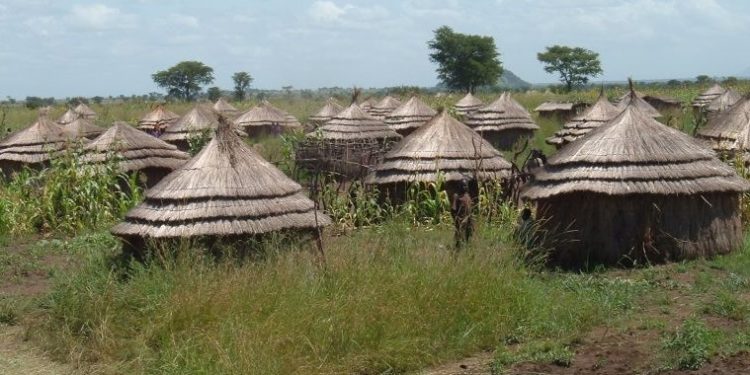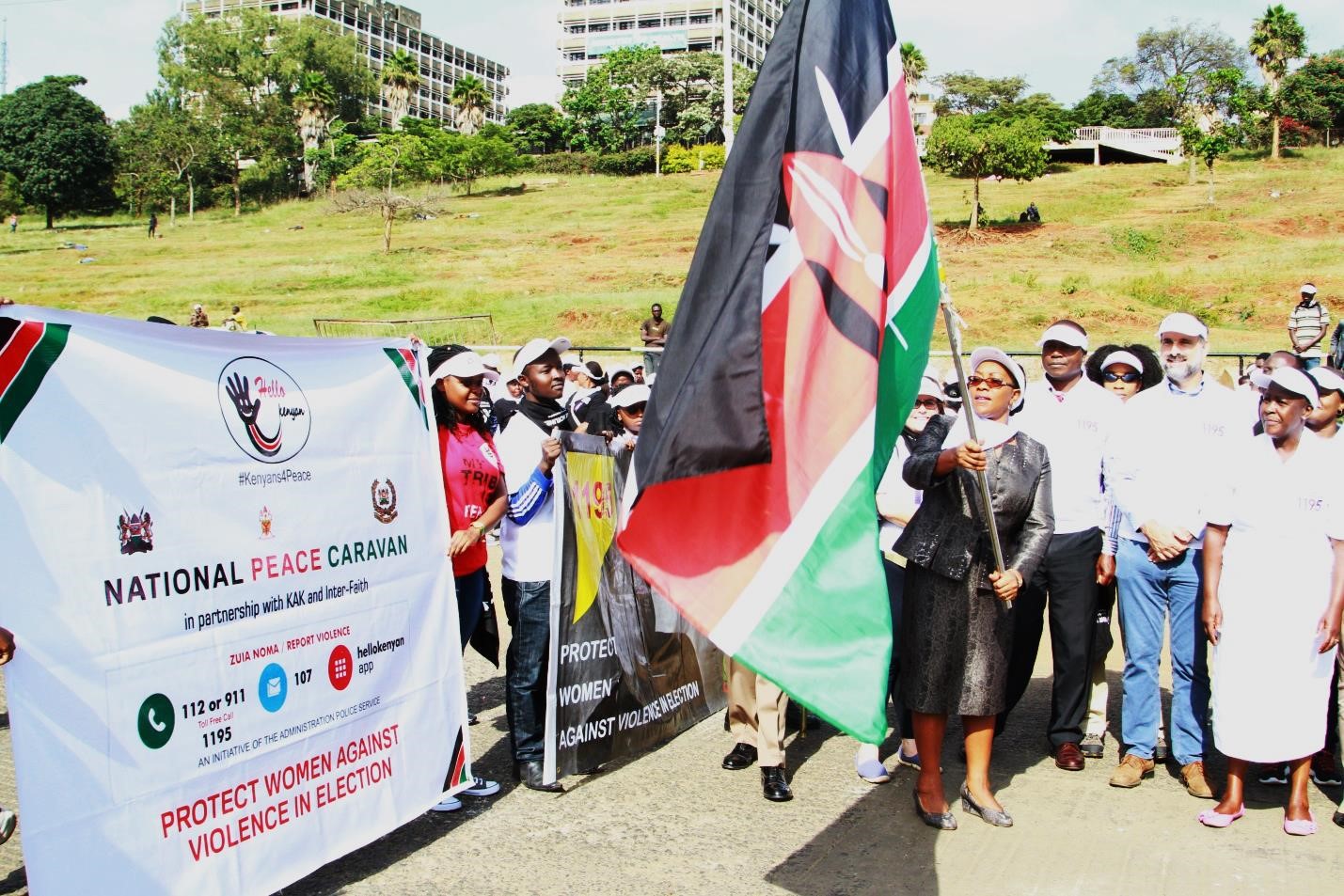By Susan Kendi
A hush has fallen on the International Criminal Court as judges deliberate on the fate the Lord’s Resistance Army commander who was charged with crimes against humanity, but a deeper silence persists on the true scale of injury suffered by women forced into marriage during the 30-year insurgency in northern Uganda.
As the world awaits the decision on the Dominic Ongwen trial, former female abductees of the LRA war still bear numerous physical and psychological scars more than 15 years since they returned to their villages. Ongwen’s trial was meant to serve as a truth-seeking journey and a search for accountability for the violations committed against women and children born in captivity. However, it is unlikely address the irreversible social effects the war has had on them or resolve their immediate economic and livelihood challenges. Women who returned to civilian life through the Amnesty Commission established under Uganda’s Amnesty Act of 2000, received resettlement assistance of a blanket, mattress, saucepan, a hoe and UGX235,000 ($62) as startup capital — similar to what LRA male returnees got. After running for four years, between 2005 and 2009, the re-integration package was suspended due to financial constraints. Non-Governmental Organisations that offered humanitarian assistance to the returnees also folded up and closed shop at the end of war in 2006.
A cloud of stigma and suspicion hangs over the heads of women forced into marriages with rebels and bore them children. Most of the children born of these forced unions are out of school because their mothers cannot afford the fees. Those who can attend school are stigmatized with the label of ‘rebel children’. Uganda’s patrilineal culture frowns on women giving birth to children out of wedlock and excludes such offspring from the inheritance of land and home.
Children with bullet wounds and other injuries from the bush are unable to receive medical care for lack of money. The women who have attempted to make a fresh start by remarrying after leaving the rebel life in the bush struggle to cope with schisms in their families. Their husbands refuse to care for the children of captivity the women came into the marriage with, and some women have had to leave such children with their own ageing parents.
Most of the children born in captivity have no birth certificate, a document that proves their Ugandan nationality and would open the door to rights, legal protection and services due to citizens. The combination of a lack of identity, financial means and rejection has forced some of the children to join the Uganda People’s Defence Forces, but many are driven to a precarious life on the streets or to suicide.
In, Gulu, a town in northern Uganda, birth certificates are now being issued without question after the government promised in 2019 to allocate money to the National Identification and Registration Authority to launch a special registration programme for some 6,000 children born during the war.
“If Kony can still come hack, I will go back to the bush,” says Grace Akello, a mother of children born in captivity. “There, everything is free. But here, I cannot even provide for my children. I only sell charcoal to get money for renting the house, provide food for children and I cannot pay them at school. If I am sick, there is nothing to do but keep on sleeping on an empty stomach if somebody has not helped us with his or her sympathy. I live with my children at home because I cannot afford … their school fees. I have no land to live on with them but every month I have to rent this small house. My children have grown up and we all share the same room. There is no privacy in my house. We are living a difficult life really,” she says in a story posted on the website of the community based organization, War Victims and Children Networking.
Most girls were abducted when they were between the ages of eight to 14 years on their way to school or home. Others were captured from their homes, barely literate and prepubescent, robbed of the protection of their families and communities, and carted off into the bush where they were labeled as “ting tings,” and distributed to the various households as baby sitters and domestic workers before being forced into marriage.
The Ugandan government has never acknowledged its failure to protect women from the crimes committed by both rebels and the Uganda People’s Defence Forces during the 30-year conflict.
Some mothers watched their children being thrown into the bush whenever they cried or slowed the rebels down. Others were locked in houses and burnt, while others watched their children put in polythene bags and beaten to death.
A prosecution witness in the Ongwen trial, P-187, told ICC judges on March 22, 2018 the harrowing details of how some mothers watched LRA fighters put their children in polythene bags and beat them to death, threw others who were months old in the bush, and locked some in houses before setting them on fire. She revealed that one of the mothers later found her child known as ‘Chana’ but he has a mental problem and learning difficulties due to the head injury he suffered at the time.
The LRA collapsed the social structure, subverting traditional, cultural or religious rites of courtship and marriage, thus denying the mothers and children born in captivity the social benefits accruing from the union. Women were no longer viewed as individuals but as property and rewards. No girl was allowed to decide on the partner she wanted to marry and neither was she consulted on whether she was ready to start a family. They were distributed and dished out as awards for the top performing LRA fighters who repeatedly raped them.
Forced marriage irrevocably changed the status of the women to wives, which significantly contributed to the social stigma they and their children continue to suffer.
Without reproductive autonomy, most girls and women were forced to get pregnant and confined until they gave birth. Additionally, they were punished for failing in their domestic duties, if they refused to have sex with their ‘husbands’ and killed if they tried to escape.
Those who escaped and returned home had to apply for amnesty. This imposed an additional burden of stigma or being labeled as perpetrators or rebel collaborators on the returnees, according to a 48-page report by International Center for Transitional Justice (ICTJ), ‘From Rejection to Redress’.
The amnesty process was more of the victims accepting wrongdoing even though their abduction was not by choice but a violation of their rights.
“By granting amnesty to girls and women who were abducted and victims of sexual violence, the government is putting the blame on those it failed to protect and in a way further distancing itself from accepting responsibility for failing to protect them from violations,” the report stated.
The Uganda government’s legal response has been one-sided with only two former LRA commanders put on trial; Ongwen in The Hague, Netherlands, and Thomas Kwoyelo at the International Crimes Division in Uganda.
Efforts to bring to justice members of the Uganda People’s Defence Force and Local Defence Units has also proved difficult and has been resisted by the government, which claims that the liable UPDF soldiers have been investigated and punished for their crimes. The state alleges that a small group of troops committed wrongful acts without their superiors’ knowledge or support.
There has never been a public record of proceedings or evidence showing that the crimes committed by the UPDF soldiers have been investigated or those implicated held to account. Additionally, there is no public information on the outcome of the ICC prosecutor’s intention to investigate crimes committed by the state actors.
A former junior LRA commander and father from Gulu mentioned in the ICTJ’s report said, “There is no justice in Uganda … In the war, there were some UPDF who raped our women in front of their men, but up to now no one has held them accountable. All you hear is about are LRA atrocities.”
Ongwen was charged with 70 counts of war crimes and crimes against humanity committed in northern Uganda between 2002 and 2005.The crimes include rape, murder, torture, forced marriage, sexual slavery, enslavement, conscription and use of children under the age of 15 years during attacks on Pajule, Odek and Abok camps for internally displaced persons, which led to the displacement of thousands.
Kwoyelo is facing 93 charges of war crimes and crimes against humanity after he was captured in 2009 by UPDF troops in the Democratic Republic of Congo. He is the first rebel commander to be tried before the ICD over the conflict between the LRA and the UPDF in northern Uganda.







